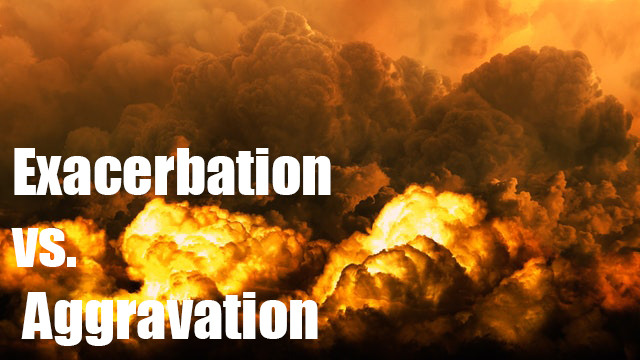Exacerbation: from exacerbate. ex·ac·er·bate. iɡˈzasərˌbāt/
verb 1. make (a problem, bad situation, or negative feeling) worse.
Aggravation: from aggravate. ag·gra·vate ˈaɡrəˌvāt/
verb 1. make (a problem, injury, or offense) worse or more serious.
- Aggravation is a worsening of a pre-existing condition or impairment.
- Exacerbation is a temporary or transient worsening of a prior condition.
- The determination between aggravation and exacerbation can only be judged correctly when the employee’s work-related injury is at MMI (maximal medical improvement).
Problem Solving: A 34-year-old female has pre-existing chronic low back pain 5/10. Then, a work injury occurs, and the pain in her back increases to 8/10. Conservative care is provided, and at maximal medical improvement the pain returns to a 5/10.
Has an aggravation or exacerbation occurred?
The answer: Exacerbation, because the employee has returned to her pre-existing condition baseline.
Next time you need to look up this pesky but important difference, simply remember that the determination between aggravation or exacerbation can only be made at MMI.
